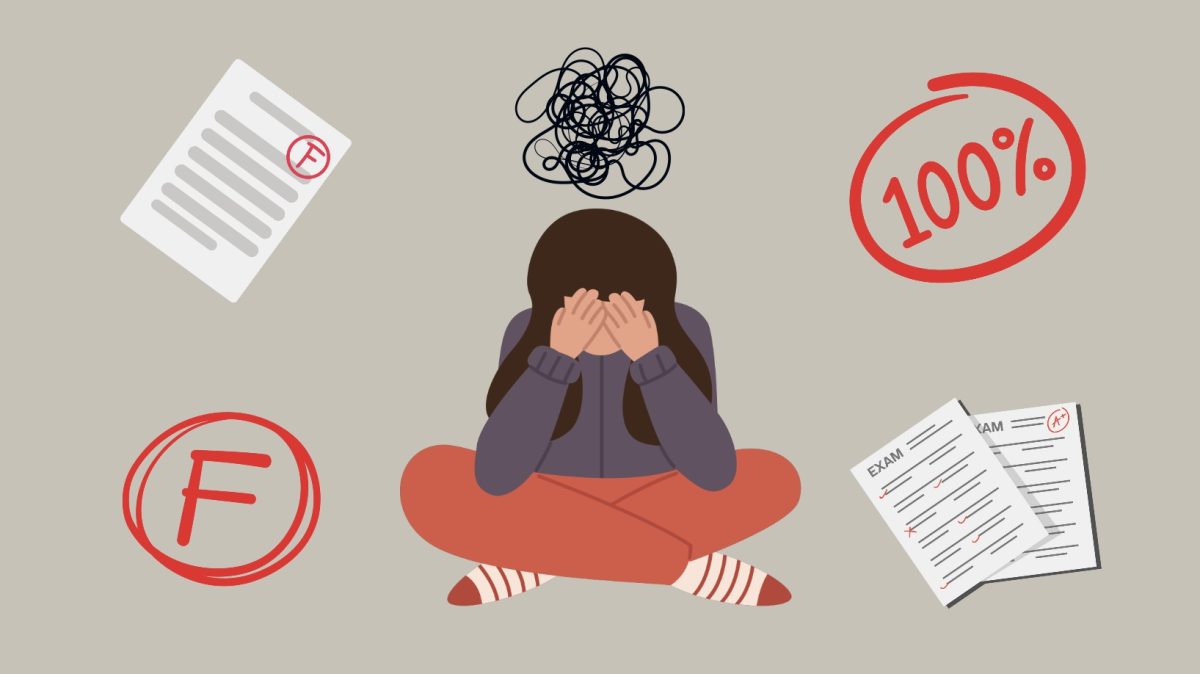Within the last 30 years, there has been an undeniable cultural shift in academic pressure and the competitive nature of education in America. There has been a significant rise in demand for top-tier colleges, leading to heightened competition due to the belief that prestigious institutions can provide better opportunities. The pressure has followed a domino effect-like path, stemming from multiple plausible causes.
Standardized testing such as the SAT or ACT has had intense importance placed upon it, to the point of students defining their intelligence and worth on the resulting scores. Economic factors play a large role as well as how students may perceive higher education as a crucial investment for their future, contributing to increased academic pressure. Pressure will only increase due to the interconnected nature of the world, leading to a highly competitive job market, causing students to strive for academic excellence to stand out.
Social factors place large pressure as well. Social media has created a platform for students to compare themselves with others, fostering a culture of competition. The consistent viewing of others’ success can contribute to academic stress. Parental expectations have grown within children, either it was easier for them years ago, or they are pushing their child to reach opportunities they had not been granted. Parents, grandparents, and other extended families can put pressure on students due to alumni desires. Many parents are driven by the belief that academic success is crucial for future success.
With incredible pressure placed on students from societal expectations, educational systems, and individual perspectives, students begin to little their worth upon their college admittance. There is a common perception that attending a prestigious college is a success. For many students, the college they attend becomes a significant aspect of their identity, slowly defining them. The fear of not being accepted evolves into feelings of inadequacy and a negative blow to self-esteem.
The impact of college admissions on student well-being emotionally is undeniable, as illustrated clearly in the hallways of our school. The Florida State University early admittance result release date created distressing scenes throughout the senior hall. The heightened competition for limited spots has intensified the pressure on the competitive nature of top-scoring students in our school. Reading “congrats”, “rejected”, or “deferred” on an email becomes a ‘pivotal moment’ in their lives, instead of a moment’s glance. The students who had secured admission were pleased, but with the majority facing disappointment, it triggered widespread distraught.
The atmosphere of tension within the air reflects the weight placed on these outcomes and the profound effect they have on student self-esteem and identity. Highlighting the desperate need for a more compassionate and supportive approach to addressing the mental and emotional well-being of students through college admissions in our school.
Our school is a competitive school, yet this struggle does include schools all over the state. At our neighboring high school, Coral Glades High School, students were seen posting their high-achieving standardized testing scores, high GPAs, many club leadership positions, and all other good stats that colleges request. These public posts were to display a message of “I have all of these amazing stats, I deserved to get in, so why would this college reject me?” Despite their frustration of rejection, these trending posts only create a negative message, causing more comparisons and even to the point of putting down admitted students. Our students had also confided in private posts to rant about the unfairness of admissions and inconsistency, further proving societal pressures.
By addressing these factors, society can contribute to creating a more inclusive and supportive environment where students feel valued for themselves rather than a “Congratulations!” paper.








